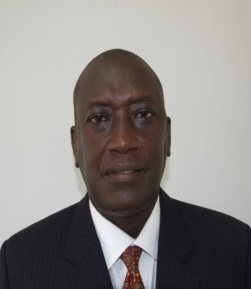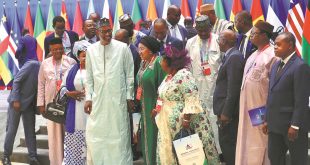Published:August 11,2022

By Mweusi Karake
Why does China inspire Africa?
Before we discuss “BRI”, let me touch on why China inspires Africa in general.
First of all, modern China is just about 73 years old. Thus not much older than most post-colonial African States. It would therefore, not be wrong to imagine that socially China could be looked at by the African States as a “big brother or Sister”. Africans have therefore, watched this big brother, grow from scratch to a superpower, both economically and politically within just one generation.
Secondly, China has developed using her own socio-economic models. China’s development models arelooked at as an alternative to the Western free market-based approach. China’s rapid growth has taken place in the past three to four decades, meaning that the majority of African leaders were still in school, still learning the syllabi that were let in the schools and colleges by their former colonial masters.
Despite the cold war, there was a general promotion of the idea that the western neo-liberal ideology would spread internationally unchecked. This was compounded by the fact that due to the cold war, unproductive money was pumped into the pro-western governments to give the impression that this was the only system that works. The kind of a doctor who keeps prescribing pain killers and sleeping pills.
The pace of economic change in China has been extraordinarily rapid since the start of the economic reforms three decades ago. Its economy has undergone a massive transformation and is now the largest in the Asia-Pacific region. It has shifted from a predominantly agricultural one to becoming an industrial powerhouse and is now far more service-oriented. These African leaders are therefore; veryconscious of the fact that there is a big difference between the “economic theories” they were taught in class and practice. These leaders do certainly remember the negative effects of the 80s and 90s Structural adjustment programs (SAPs).
Unlike the pieces of advice given to Africa under SAPs to mainly desist from government economic interventions, The Chinese development model is based on continuous and selective state interventions in markets and firms with the objective of shaping the course of economic development. It would not be surprising therefore, that African Statesmen and women believe that they have more to learn from China than from the West.
This Chinese development model, which includes a strong role for the state, a focus on investment, and an export-oriented economy has produced around four decades of extraordinary growth. China did not need four hundred years of African Slaves to build the foundation for her economy. A big lesson to the world and a big lesson to Africa that there are alternative ways to doing things.
The Communist Party of China factor:
The western multi-party economic system has not helped either. The CPC has been at the forefront of China’s economic development. It has been around for more than seven decades. My reading is that the CPC will still be around a number of decades ahead. In any partnership; marriage, political, or business venture, there is minimum desire; that is: A reliable partner. Full stop! And as the Americans would call it “period!” So if I were an African president(unfortunately my likelihood of being one is 0%)would I want to deal with policymakers whose policies are to change in 4 to 10 years or one that is likely to be there 50 years ahead, therefore, a partnership that is secure for me, good for me my children and grandchildren?
Back to One Belt One Road Initiative (BRI)
Apologies for my long epilogue, but I hate plunging my readers into a deep end,
First of all, china has a long trading relationship with Africa, that got to the pre-colonial era.
As an East African, I look at the BRI as the revival of trade routes along China’s ancient Silk Road linking China to East Africa. Unlike “fort Jesus”, this trade was transactional in goods and services, not collecting African Slaves; can you imagine Fort Jesus, an assembly to collect lesser humans (blackAfricans) to serve superior Christian westerners?
BRI is being promoted by Chinese leaders as a symbol of China’s commitment to Africa and a revival of old friendship, but also as a global development flagship for shared development.
I strongly appreciate President Xi Jinping statement at the last China Africa Forum when he clearly stated that, “Chinese funds are not for “vanity projects” in Africa but are to build infrastructure that can remove bottlenecks in the continent’s development”. Inadequate infrastructure funding is the biggest bottleneck to African development.
I still vividly remember the American CIA stooge Zairian president Mobutu’s rhetoric about “barrageInga”. Inga dam under his “objective quatre vingt” (vision 1980). What and where would Zaire (DR Congo) be if this dream had been turned into reality? Inga Dam would have been the world’s biggest hydropower project that is capable of providing the entire African continent with electricity Middle East and beyond, not only electrifying Africa but also giving DR Congo a constant income from other African states, Middle East and European countries.
Couldn’t his western backers for three decades at least help him build that dam? this single project could have probably redeemed Mobutu ghost if he had died with at least that one positive achievement.
Now I understand that a Chinese company ismobilising resources to construct this mega project. Even if DR Congo Congo was to sing a “build –operate hand over deal” of 50 Years with this Chinese company, wouldn’t that be more of benefit than the years lost under Belgian Colonialism and CIA patronage?
Africa’s biggest problem is the lack of infrastructure. Our colonial infrastructure was deliberatelydeveloped to link the African resources to the oceans that would export raw materials them to their colonial masters.
It takes a Rwandan importer five times more to get a container from Mombasa Kenya to Kigali that the amount it takes to move it from Japan to Mombasa. Some years back, China offered to grant a loan that would have extended the Nairobi –Mombasa standard gauge railway to Malaba in western Kenya, then, Kampala Kigali, with another line to Southern Sudan. The dream still exists and we can pray that it materializes in our lifetime.
BRI and the African Free Trade Area (AfFTA)
The operational phase of the AfCFTA was launched during the 12th Extraordinary Session of the Assembly of the Union on the AfCFTA in Niamey, Niger on 7 July 2019. Start of trading under the AfCFTA Agreement began on 1 January 2021. However, no trade has as yet taken place under the AfCFTA regime.
.
Africa is not going to implement AfCTA, by flying goods on the continent. Thus BRI is seen as a catalyst for African regional economic integration and competitiveness, because BRI has concentrated on helping Africa develop its infrastructure connectivity.
BRI will not just help Africa interconnect but there will be more trickle down effects as well. Advocates of One Belt One Road Initiative point to the potential for by-products, such as increased private Chinese investments in an infrastructure project, an area that China is known to be excellent in; real estate, agriculture, ( china feed one-third of the world population) among others.
Africa interconnectivity as well to world markets
Let us look at some of BRI’s achievements it the last few years of its operationalization. The already mentioned standard gauge railway connecting Mombasa to Nairobi—the biggest investment in Kenya since its independence—is a flagship BRIproject in East Africa’s largest economy. The bigger dream should connect other hinterland as mentioned before. The electric railway from Addis Ababa to Djibouti is another BRI endeavor.
From Djibouti, the Maritime Silk Road connects planned and completed Chinese port clusters in Sudan, Mauritania, Senegal, Ghana, Nigeria, Gambia, Guinea, São Tomé and Príncipe, Cameroon, Angola, and Namibia. Another route links Djibouti to Gwadar, Hambantota, Colombo, Myanmar, and Hong Kong. The final arc of this corridor connects Walvis Bay (Namibia Southern Africa) to Chinese port clusters in Mozambique, Tanzania, and Kenya before also connecting to Asia pacific and Easter Europe. This will certainly be a game changer, and of course, they are many who will not be happy with these developments. I need not mention them.
My response and conclusion to Critics of BRI
One of the biggest accusations is that China is putting Africa into some kind of a “debt trap”. Let us face the fact. No country on this planet is purely benevolent. How much does Africa owe to their former colonial masters, who should in the first place be our debtors, and at what cost? How much do we owe to the western arms suppliers? So, I would rather have my children and grandchildren inherit aloan that built a railway, a road, or an airport.
Yahya Abdul-Aziz Jammeh of the Gambia, Mobutu Sese Seko of Zaire, Sani Abaca, of Nigeria, and other kleptomaniacs will not leave a railway or a road hidden in an unknown Swiss bank account. This will even be made difficult if it is a regional or continental project that will be supervised by multi-stakeholders.
BRI projects will have positive net benefits for African countries, provided our African leaders negotiate properly and manage the initiative properly. In addition, under BRI, I strongly believe that African relationships can be placed on more equal footing than the relationship with their Western former colonizers, and neo-colonial masters; Of course, “Equal footing” is naïve no one can be equal to his funder, but the magnitude of patronage differs.
Like it or not, four centuries of Western dominance are coming to an end, and a new world order is at the corner. Africans understand this and no one is going to stop them partner with those who have the future.
Mweusi Karake, is veteran journalist, and former Head of Public Relations/Corporate Communication at the Common Market for Eastern and Southern Africa, (COMESA), currently based in Kigali, Rwanda.
For comments or opinion write to us on info@africachinareview.com
 Africa -China Review Africa -China Cooperation and Transformation
Africa -China Review Africa -China Cooperation and Transformation
